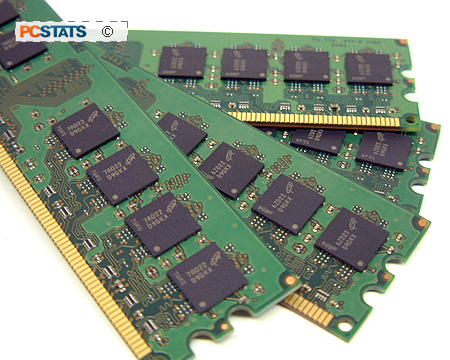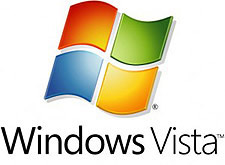Usually a hardware upgrade isn't required for a new
operating system. Yet if you are planing to upgrade Microsoft Windows
XP to Microsoft Windows Vista, it's almost impossible to avoid a PC overhaul. Aside from things like the speed of your processor (minimum 800MHz), and using a videocard that supports Vista's sublime Aeroglass graphical interface (DirectX 9), the most important and limiting factor is going to be memory. If the PC doesn't have enough RAM to satisfy Vista's intense thirst, you'll be the slowest thing on two wheels. For the record, Vista's minimum memory requirement is 512MB, though realistically that should be doubled.
Much of the focus on Microsoft Windows Vista has revolved around its steep graphical interface requirements. Vista craves graphics cards that are DirectX 9.0C compatible with 128MB of memory to run its AeroGlass feature. Next is the large drive space requirement, sitting at 15GB just for its installation files, Vista is a fat OS.
Getting back to the memory requirements. Microsoft Windows XP required 128MB to operate (not fast, but it'll work), but four times that amount of system memory is required by Windows Vista just to install. Vista will function with 512MB system RAM, but the ride is a rough one. Microsoft recommends that Vista computers ship with 1GB of memory, and considering its recommended specs, that's wise advice.
If you are not sure your computer will work
with Microsoft Windows Vista, here's a quick test. If it's using SDRAM or RDRAM memory,
it's probably too old. For a more definitive answer, run Microsoft's Windows Vista Upgrade Advisor and take a look at the report. If your PC is 2 years old or so, you will probably get by with a quick hardware upgrade here or there.
What is the Right Amount of Memory for Vista?
Generally speaking more
computer memory is better than less. However, installing more than 2GB of RAM doesn't necessarily translate into a faster Vista desktop PC. Only a few applications may see improvement, and then the law of diminishing returns kicks in. So 2GB of RAM is generally considered the sweet spot for Windows Vista. As the operating system matures, along with supporting software, it's possible that number will climb. It's a wise move to choose a PC that can be upgraded to 4GB.
 Microsoft Windows Vista has one new feature
called ReadyBoost which you may have heard about. It was
intended to augment PCs with low amounts of system memory so Vista might
run quicker. The thinking being that a USB drive
could act as a dedicated read buffer for the system.
Microsoft Windows Vista has one new feature
called ReadyBoost which you may have heard about. It was
intended to augment PCs with low amounts of system memory so Vista might
run quicker. The thinking being that a USB drive
could act as a dedicated read buffer for the system.
Regardless of what Microsoft may claim, ReadyBoost is
more of a memory supplement than system memory replacement. A
slower PC system will get more benefit from 1GB of system RAM
than 4GB of ReadyBoost USB memory acting as a buffer.
PCSTATS has tested the impact of ReadyBoost with
different amounts of system RAM, in this
article. Impact was minimal on the whole, big changes occurred from
the step up from 512MB to 1GB. There's a lot more to this, so have
a look at the article,
it will clarify any questions you may have about ReadyBoost.
Of all the different Microsoft Windows Vista versions, Home Basic gets away with the least system memory because
the OS is more compact and robust. Its minimum requirements are 512MB, whereas
the other versions are pegged at 1GB. Additional features like AeroGlass
and Windows Media Center for example add to system load.
 If More RAM is Better, is a Lot More RAM Even
Better?
If More RAM is Better, is a Lot More RAM Even
Better?
Short answer, no. If a PC is installed with 4GB of system memory, the computer itself will register 4GB
but Windows Vista/XP will not be able to recognize it all. It's nothing
to fret over, this is a normal limitation with 32 bit operating systems. The operating system will report 3.5GB or
so, but the "missing memory" (varies between 500MB-750MB) is there, reserved for
hardware devices.
It's possible to install more than 4GB of memory in
a PC, but that will require the use of Physical
Address Extensions (PAE). This feature is primarily a workstation/server option, and realistically there isn't much need
for that much memory in a desktop system. Another option is to install Microsoft WindowsXP
64 bit Edition, or the 64 bit version of Windows Vista.
Windows Vista SuperFetch uses more memory than
WindowsXP's version
Modern
operating systems automatically load commonly used DLLs and programs into memory, so when
decide to load an application you use frequently, it pops up faster. To make
this happen, since Microsoft Windows 95, there has been a function called
Prefetch which monitors user activity and
preloads those application extensions into system memory.
In Microsoft
Windows Vista it is called SuperFetch, and it reserves about 33-50% of system
memory for this purpose. Essentially Windows Vista looks at how the computer user
accesses application and data, and keeps the most often used applications and tasks loaded
into cache memory. This makes loading applications quicker and is supposed to offer
users a smoother ride. It does not take system memory away from the OS or
applications, if memory demand his high SuperFetch will automatically adjust its
size.
We're just trying to clear the common misconception that Microsoft Windows
Vista is poor at memory management. Windows Vista seems to consume a lot of
memory because its SuperFetch feature grabs memory for itself upon startup.
| Vista Memory usage per version |
|
Operating
System |
Fresh Install Memory
Usage |
Recommended Memory
Size |
Installed System Memory |
| Microsoft Windows Vista Home Basic |
554MB |
512MB |
1GB |
| Microsoft Windows Vista Home Premium |
552MB |
1GB |
1GB |
| Microsoft Windows Vista Ultimate |
541MB |
1GB |
1GB |
The above examples were done with a total of 1GB of system
memory. With 2GB or 4GB of memory, Windows Vista (all versions) grabs ~800 MB.
The more system memory installed, the more Vista will be able to cache programs,
tasks and services.
Windows Vista: How much memory is enough?
Up next we'll see how memory sizes affect different tasks within Windows Vista. Do you need
as much memory when you're running office applications as you do when you're gaming?
How much memory do you need in Vista to game comfortably, and spreadsheet smoothly? The
answers are next!

